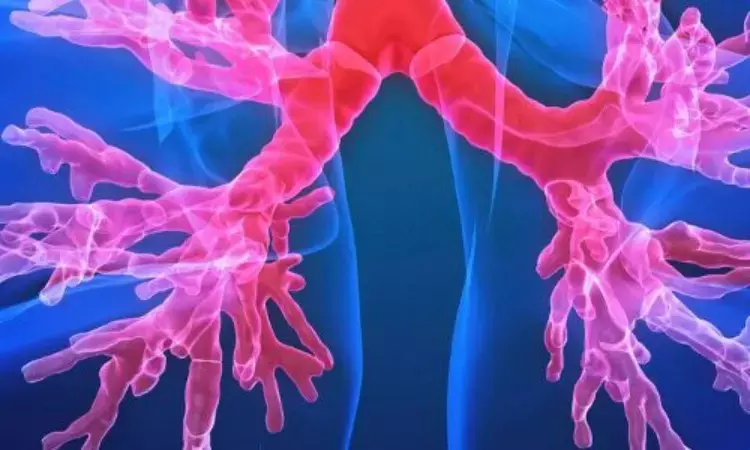- Home
- Medical news & Guidelines
- Anesthesiology
- Cardiology and CTVS
- Critical Care
- Dentistry
- Dermatology
- Diabetes and Endocrinology
- ENT
- Gastroenterology
- Medicine
- Nephrology
- Neurology
- Obstretics-Gynaecology
- Oncology
- Ophthalmology
- Orthopaedics
- Pediatrics-Neonatology
- Psychiatry
- Pulmonology
- Radiology
- Surgery
- Urology
- Laboratory Medicine
- Diet
- Nursing
- Paramedical
- Physiotherapy
- Health news
- Fact Check
- Bone Health Fact Check
- Brain Health Fact Check
- Cancer Related Fact Check
- Child Care Fact Check
- Dental and oral health fact check
- Diabetes and metabolic health fact check
- Diet and Nutrition Fact Check
- Eye and ENT Care Fact Check
- Fitness fact check
- Gut health fact check
- Heart health fact check
- Kidney health fact check
- Medical education fact check
- Men's health fact check
- Respiratory fact check
- Skin and hair care fact check
- Vaccine and Immunization fact check
- Women's health fact check
- AYUSH
- State News
- Andaman and Nicobar Islands
- Andhra Pradesh
- Arunachal Pradesh
- Assam
- Bihar
- Chandigarh
- Chattisgarh
- Dadra and Nagar Haveli
- Daman and Diu
- Delhi
- Goa
- Gujarat
- Haryana
- Himachal Pradesh
- Jammu & Kashmir
- Jharkhand
- Karnataka
- Kerala
- Ladakh
- Lakshadweep
- Madhya Pradesh
- Maharashtra
- Manipur
- Meghalaya
- Mizoram
- Nagaland
- Odisha
- Puducherry
- Punjab
- Rajasthan
- Sikkim
- Tamil Nadu
- Telangana
- Tripura
- Uttar Pradesh
- Uttrakhand
- West Bengal
- Medical Education
- Industry
Haemophilus influenzae Colonisation in Bronchiectasis patients tied Severity and exacerbation of disease: Study

Bacterial colonization plays a crucial role in the pathogenesis of bronchiectasis, but the clinical significance of specific organisms like Haemophilus influenzae remains poorly understood. A recent retrospective study aimed to investigate the impact of H. influenzae colonization on bronchiectasis patients. This study was published in the journal BMC Pulmonary Medicine by Seo-Hee Yang and colleagues.
Bronchiectasis is characterized by irreversible dilatation of bronchi and recurrent respiratory infections. H. influenzae is among the common colonizers in bronchiectasis, but its effects on disease severity and outcomes are not well-established.
The retrospective study screened adult bronchiectasis patients from a tertiary referral center in South Korea over an 18-year period. Propensity score matching was employed to compare patients with and without H. influenzae colonization. Parameters assessed included bronchiectasis severity index, exacerbation rates, lung function, and mortality.
Key Findings
• Out of 4,453 bronchiectasis patients, 79 (1.8%) were colonized with H. influenzae.
•Following propensity score matching, 78 patients with H. influenzae colonization were compared with 154 non-colonizers.
• Patients colonized with H. influenzae exhibited a higher bronchiectasis severity index (median 6 vs. 4, p = 0.002) and more extensive radiographic involvement.
• Incidence of mild exacerbation without hospitalization was significantly higher in H. influenzae colonizers (adjusted incidence rate ratio 0.15, 95% CI 0.12-0.24).
• Lung function and mortality rates did not significantly differ between the two groups.
The study highlights that H. influenzae colonization in bronchiectasis patients is associated with increased disease severity and a higher incidence of mild exacerbations. However, it did not significantly impact lung function or mortality rates. These findings emphasize the importance of monitoring and managing patients with bronchiectasis, especially those colonized with H. influenzae, to prevent exacerbations and improve outcomes.
Reference:
Dr Riya Dave has completed dentistry from Gujarat University in 2022. She is a dentist and accomplished medical and scientific writer known for her commitment to bridging the gap between clinical expertise and accessible healthcare information. She has been actively involved in writing blogs related to health and wellness.
Dr Kamal Kant Kohli-MBBS, DTCD- a chest specialist with more than 30 years of practice and a flair for writing clinical articles, Dr Kamal Kant Kohli joined Medical Dialogues as a Chief Editor of Medical News. Besides writing articles, as an editor, he proofreads and verifies all the medical content published on Medical Dialogues including those coming from journals, studies,medical conferences,guidelines etc. Email: drkohli@medicaldialogues.in. Contact no. 011-43720751


